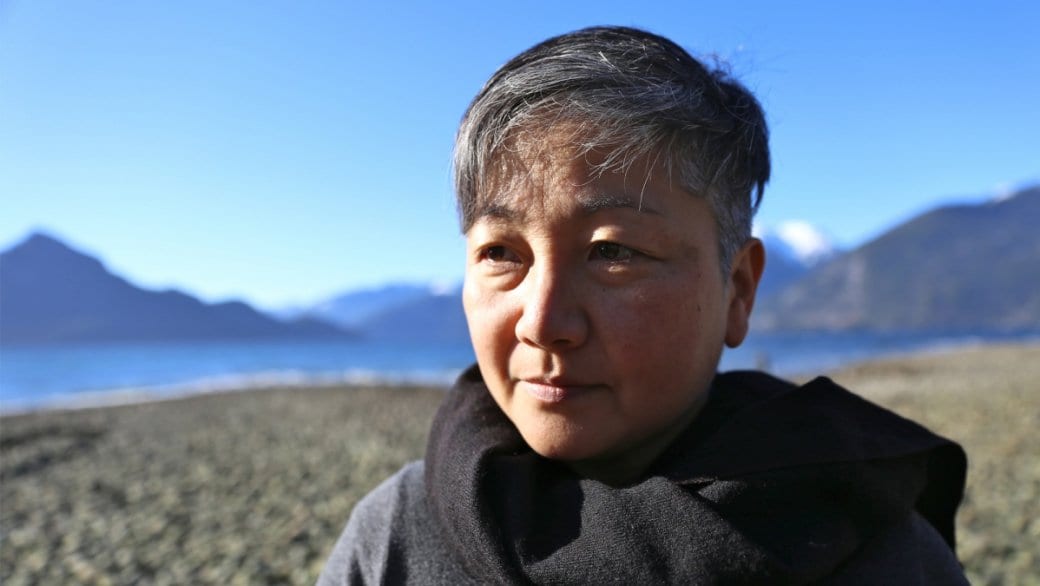This story was created by Xtra's branded content team alongside Qmunity, separate from Xtra's editorial staff.
On May 19, 2017, Vancouver’s queer, trans and two-spirit resource centre, Qmunity, will be putting on its 13th annual breakfast for the International Day Against Homophobia, Transphobia and Biphobia (IDAHOT) at the Fairmont Hotel Vancouver, in honour of the World Health Organization first declassifying homosexuality as a mental disorder 27 years ago.
This year, the breakfast’s theme is “Stories Of Us,” with first generation Japanese-Canadian settler and acclaimed writer Hiromi Goto as the keynote speaker.
Goto says the breakfast is a wonderful platform to showcase the diversity of queerness. “It’s important to be visible and share experiences from [my] standpoint because often the queer culture that is focused upon is very youthful and primarily white,” she says. “I think it’s important for younger people who are just coming out, and uncertain, that there are generations of queerness.”
Goto represents these generations of queerness in her own work through the representation of gender, sexuality and race. Her 2001 novel The Kappa Child, for example, is written in first-person, but deliberately leaves out any gender pronouns. It’s an experimental novel that explores how we speak about gender and its expression. Goto describes The Kappa Child as a “very queer story” which shows readers other ways of existing in a world so heavily filled with labels.
Since the publication of The Kappa Child, Goto has acquired an impressive list of titles. Her next book, Shadow Life (2018) is a graphic novel about a 76-year-old Japanese-Canadian woman who escapes an assisted living complex to set up a bachelor apartment to enjoy the little things in life.
From queer stories to ones that spotlight other marginalized communities, Goto’s creative prowess carries through in many genres to show the power of storytelling; she wants to show readers that books can offer salvation for those who feel ostracized in everyday life.
“I remember when I was young, books transported me, stories transported me, and I feel like they kind of saved my life in a way,” Goto says.
For Qmunity’s executive director CJ Rowe, choosing Goto was a no-brainer. “Stories are powerful devices,” Rowe says. “Hiromi has weaved stories and has brought light into the shadows where she teases out the beauty in often complicated places.”
For Rowe, Goto’s work can allow trans, queer and two-spirit youth to find new meaning, new connections and ultimately find new ways of working through their struggles. And this is something Goto also recognizes.
“A story can be a place to salvage oneself, can be a harbour and it can a place to imagine a different way of being without risks to your personal safety,” Goto says.
“A story can let you imagine yourself in a future that is perhaps what isn’t now, where you’re not lonely, frightened, in danger, but a future where you can say, ‘My life can have a different outcome.’”
International Day Against Homophobia, Transphobia and Biphobia Breakfast 2017
May 19, 2017, 7am
Fairmont Hotel, 900 W Georgia St, Vancouver, BC
qmunity.ca/event/idahot


 Why you can trust Xtra
Why you can trust Xtra